Specifications
General Characteristics
- Created On Windows
- Wingspan 320.5ft (97.7m)
- Length 210.4ft (64.1m)
- Height 41.0ft (12.5m)
- Empty Weight N/A
- Loaded Weight 221,647lbs (100,537kg)
Performance
- Power/Weight Ratio 0.304
- Wing Loading 28.3lbs/ft2 (138.1kg/m2)
- Wing Area 7,836.1ft2 (728.0m2)
- Drag Points 190031
Parts
- Number of Parts 509
- Control Surfaces 9
- Performance Cost 1,542

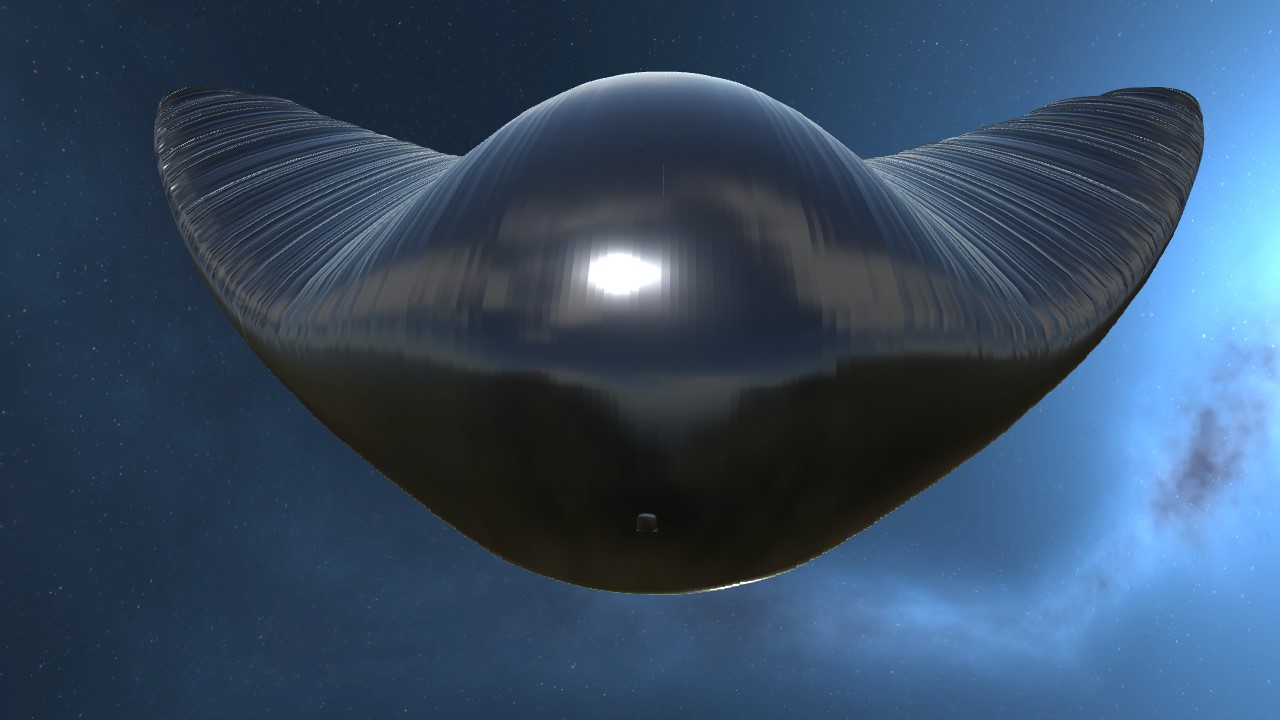
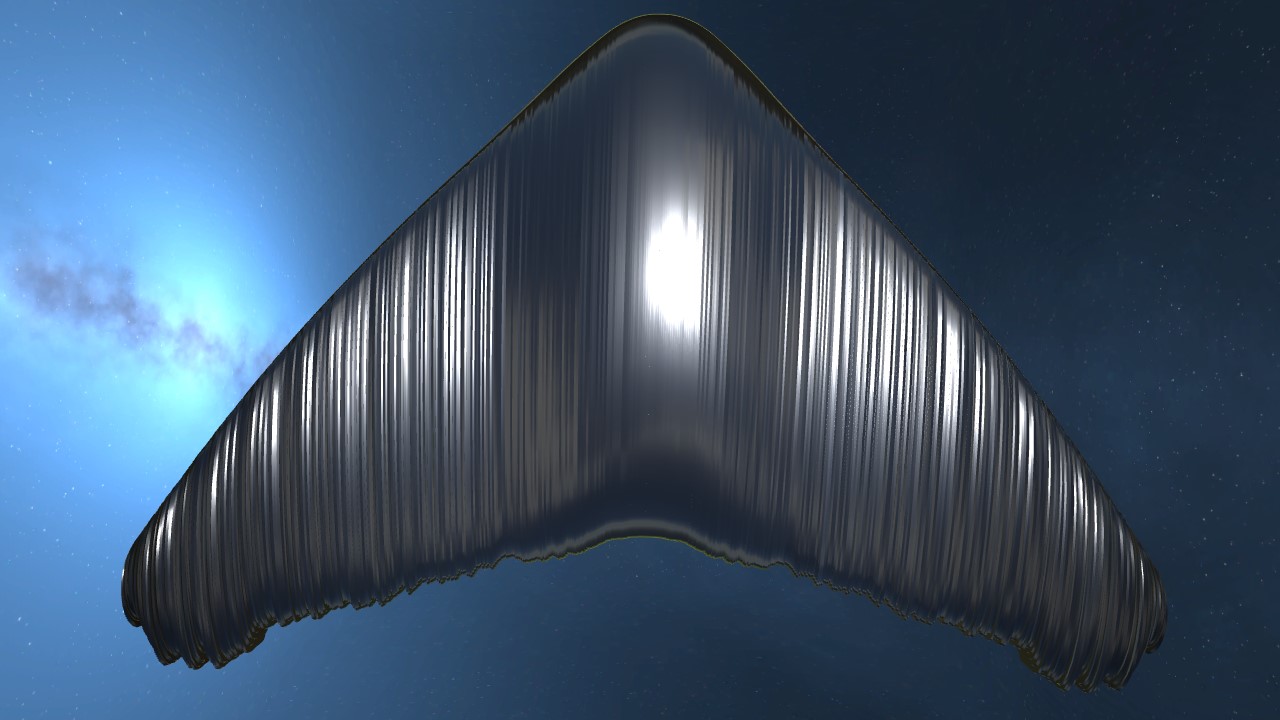
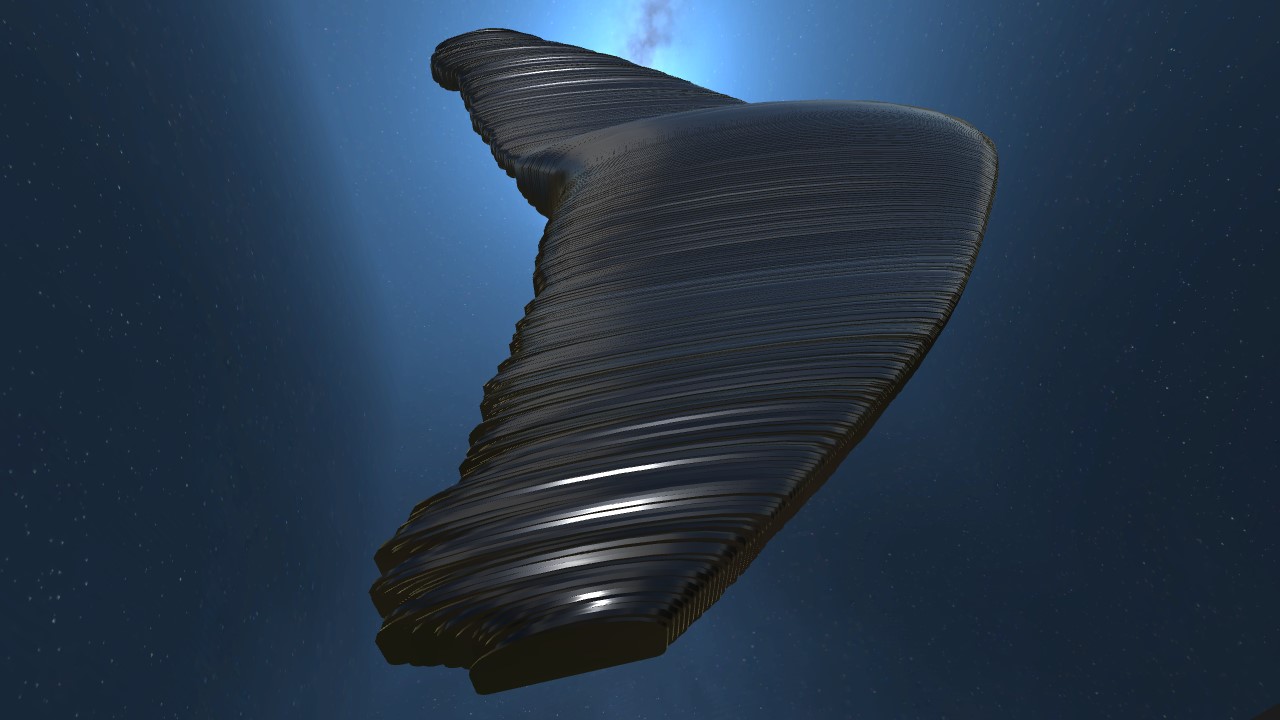
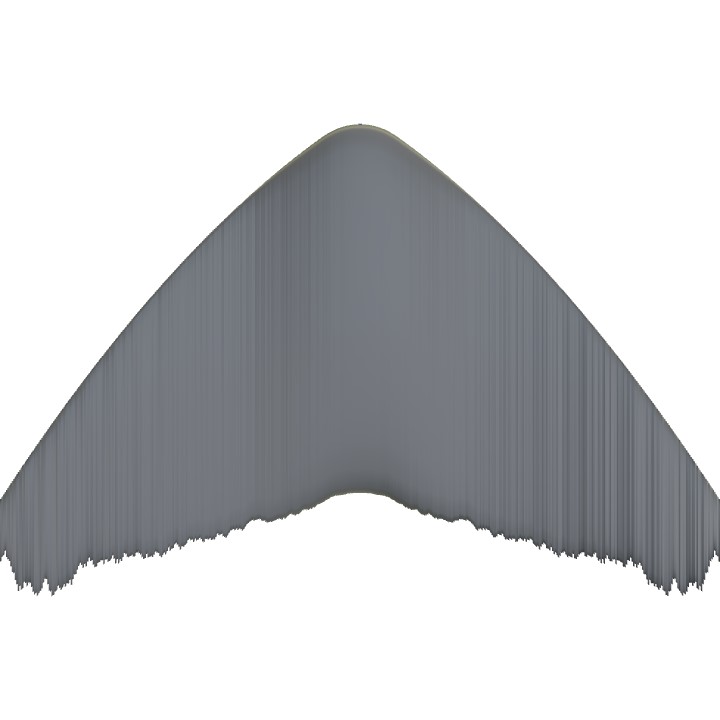
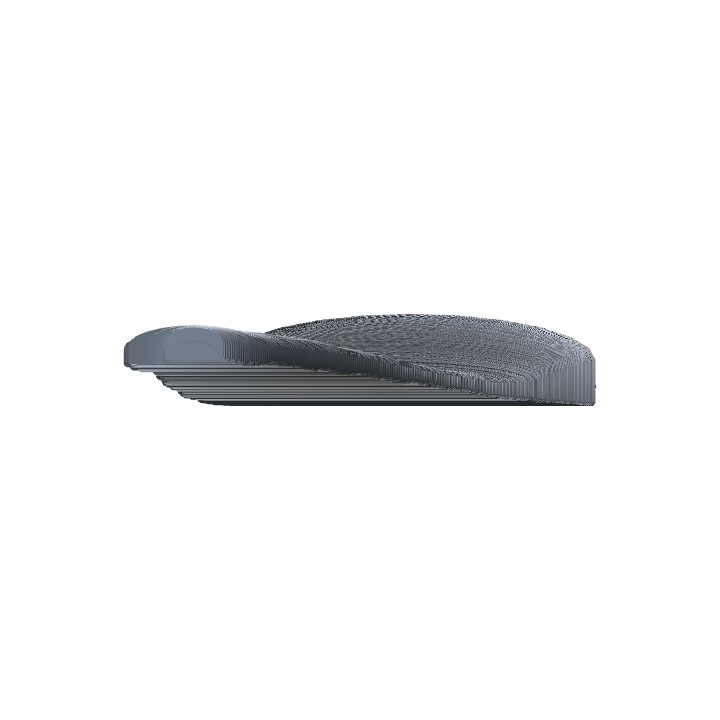
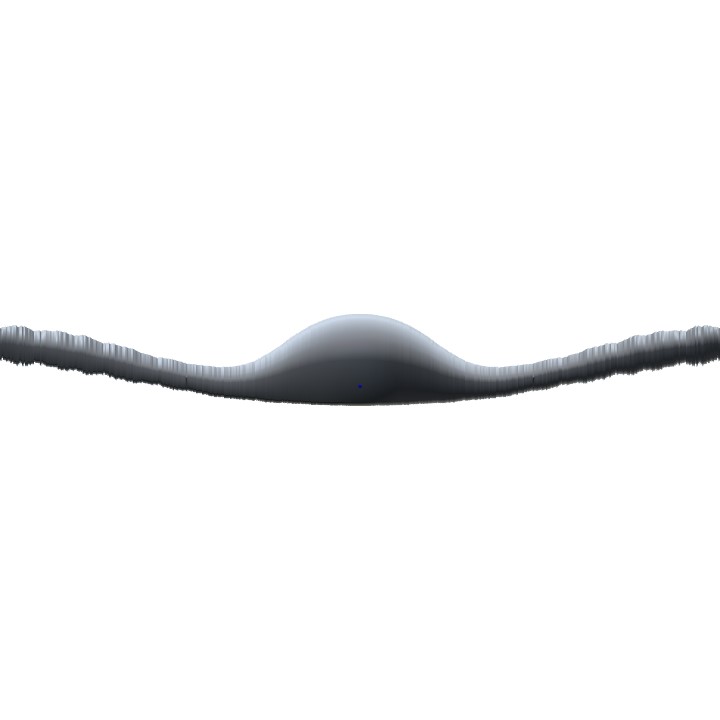
@FlyingThings We are ancient aliens.
@FlyingThings Yes... of all the accidents we've caused, that is the one I regret the most.
@SledDriver wait a second!
That means that your company is more than 65 millon years old!
Do you use ancient alien tech?
@SledDriver so, i guess that accident happened on Terra X and wiped out most of the dinosaurs and made human life possible. Accidents always happen.
@FlyingThings Well, the planet he almost destroyed was very primitive back then, with large reptiles being the dominant lifeform. I think our little, er, accident wiped them out and left the planet wide open for a bunch of monkeys who were living in the trees at that time. I gather those monkeys have since learned to walk upright and discovered the internal combustion engine, which they seem to think is the greatest thing in the world. To see those monkeys revving their engines and driving up and down to no purpose, you'd think that engine noise was the sweetest sound in the world.
@SledDriver that captain only received a pay cut!? Why dont leave him on a lonely planet instead
@FlyingThings Of course, to counter the recoil, we have to send an equal mass of particles at equal speed in the opposite direction, i.e. behind the ship. This means we have to be very careful when leaving a planet. Once one of our ships created a very large crater on a blue-green planet and almost destroyed all life on it when we launched from its vicinity. The captain responsible received a substantial pay cut, I can assure you.
@FlyingThings We're experimenting with another technology as well: we create a collimated shockwave of superfast particles that travels ahead of the spacecraft, eliminating any debris in its path. Think of it like strolling along behind a massive cannonball clearing a path for you through a busy street. The particles are made of extremely dense metals like platinum, iridium, and osmium, so are quite effective.
@SledDriver oh yes. We at Thingy-Hypernautics have witnessed that problem a lot. Our best attempt to avoid particle damage was this. Our craft flies rather slow and uses a magnetic field. But your solution sounds more practical. Too bad we dont have enough experience with faster craft.
@FlyingThings For that we use an intense ionising field millions of cubic kilometers in volume extending ahead of the ship; this ionises the space debris and we then use an electromagnetic field to repel them. Of course, if a ship chances across an object too massive to repel in time, everything ends in plasma.
@SledDriver Ok, one last question, how did you get around the problem of small particles that hit your ships at non-hyperspace travel? A object as big as a marble could completely tear your craft apart.
@FlyingThings That is correct, no form of communication has ever worked between hyperspace and normal space.
@FlyingThings We have too many ships to pick a best one. Generally, the more recent the ship, the better it performs in hyperspace, as we're continuously improving our designs. They all fly more or less equally well, it just remains to be seen what the best shape to minimise erosion is.
@SledDriver one small question, what is the best ship of your fleet?
@SledDriver Thats kinda scary to know. So, while hyperspace, no data can be transmitted. Right?
@FlyingThings If enough of the hull is worn away, there is no hope of ever escaping hyperspace; we have no way of knowing what happened to those ships and crews. There's no way of communicating between hyperspace and normal space, so only if a ship comes through can we find out what happened.
@SledDriver Are there some reported Accidents that happened during hyperspace or is it just like no help signal and just gone forever.
@FlyingThings Earlier it was more like 10% survival; these days the odds are better than 70%. No one ever said it doesn't take courage to explore new frontiers....
@SledDriver So every hyperspace mission is like a 50/50 death/live chance.
@FlyingThings Worm-hole travel is just another name for going through hyperspace. The mathematics is not fully understood, which is understandable (ha) considering that hyperspace is not observable. From inside the field all you can see is pure black nothingness; any instruments you stick outside the field get eroded into nonexistence. All we have at this point is trial and error, with some educated guesswork.
@SledDriver oh, didnt know that. Ummmm, what about experiments with magnetic fields? Or worm-hole travel?
@FlyingThings The nature of the hyperdrive field is such that it cannot exist in vacuum, but only along a metallic surface.
@SledDriver i suggest that you put some sort of antenna on the front, and the sides of the craft. Connect them to a shield generator so it forms a protective bubble around the ship.
@FlyingThings Because of the bulbous body? Clever deduction. The science of hyperspace flight is still in its infancy and we're trying to find the best combination of shape and field generator placement to minimise erosion.
I guess this one is meant to serve mutiple hyperspace missions.